War
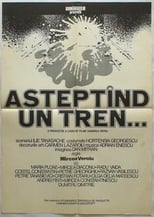
Waiting for a Train
January 1, 1982
After Romania changed alliances in August 23rd, 1944, a group of soldiers have the mission to stop a military train.
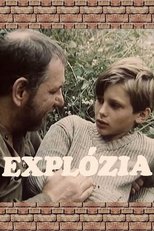
Explosion
August 8, 1982
Television film about people who are actively involved in the Slovak national uprising in 1944. A screen adaptation of the novel by Rudo Moritz in 1951.
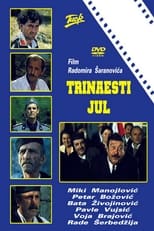
July 13th
January 1, 1982
This is a movie about the start of people's uprising in Montenegro in World War II. After the capitulation of the Yugoslav Royal Army in April 1941, the Italians managed to infiltrate their puppet regime in Montenegro. However, people dissatisfied with the new authorities, on July 13, 1941 decided that the Communists led start to fight for freedom.
The Five Legged Rabbit
January 1, 1982
This movie is set at the start of World War II, with little shepherds on the green slopes of an Albanian mountain range featured as intrigued, distant observers of the Italian army and their prey, the partisan fighters who are hiding in the homes of the villagers. Even the Albanian police who are supposed to be helping the Italians do not betray the resistance fighters when they see them. The children watch as the hunter and hunted play out their drama below, not understanding that the scenes are more real than their own hunt for the five-legged rabbit that is supposed to be living in these hills. As the tragedies of war mount, the children start to become more involved - at one point they steal the weapons from some drunken Italian soldiers, nearly leading to a disaster on their part. Time and events rapidly unfold, and it soon becomes apparent that their innocence will not last for long because their own existence is threatened in a way they are just beginning to understand.
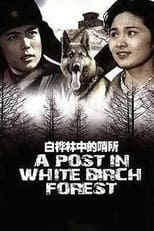
A Post in White Birch Forest
January 1, 1982
A young soldier must balance the difficulties of being a military dog handler with his own personal life.
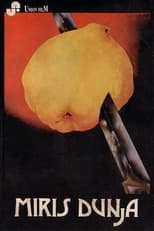
Scent of Quinces
January 1, 1982
Thanks to his friendliness towards Nazis, Sarajevo businessman gets more and more rich during WW2. However, his infatuation towards the Jewish girl causes his downfall.
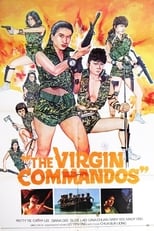
Lady Piranha
January 1, 1982
Six female POWs lead an escape from a North Vietnamese prison camp, then join the local rebel forces to plan an attack to wipe out the camp and free the rest of the prisoners.
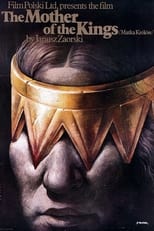
The Mother of the Kings
March 1, 1987
Made in 1982, shelved for five years. Story opens with Lucja Krol's husband under the tram. She gives birth to her fourth son on the floor of their new apartment. Neighbor Wiktor, a communist intellectual, befriends the poverty-stricken family but is soon arrested and sent to jail. During the war Lucja narrowly escapes a Nazi roundup at the black market. Her sons hold ardent Communist meetings in their apartment, with her blessing. Lucja works hard, but without complaint. After the war, Klemens is inexplicably arrested, accused by the new regime of being a collaborator. Wiktor, now a high-ranking party member, trying to defend him, himself falls into disgrace. Klemens is tortured to "confess" and dies in jail, a Communist to the end. Lucja is never told about his fate.
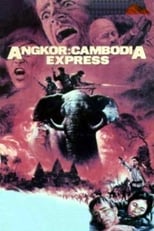
Angkor: Cambodia Express
January 1, 1982
In a tale of drama and adventure, young journalist Andy Cameron (Robert Walker) has to get into Cambodia (it is assumed this is during the genocidal reign of Pol Pot). Cameron has to smuggle out his girlfriend Mieng (Nit Alisa) before she is killed (along with the other two million Cambodians), but he cannot manage this alone. He enlists the aid of an American Vietnam vet and the help of a few Khmer men. Eventually, Cameron makes his way into Cambodia where he encounters many dangers, some human and some inhuman.
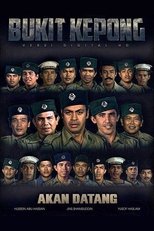
Bukit Kepong
December 30, 1981
The dramatisation of a Communist Terrorist assault on a rural Federation of Malaya Police station at Bukit Kepong, Muar, Johor, of then Malaya, on February 23, 1950, during the height of the First Malayan Emergency, 1948-1960.
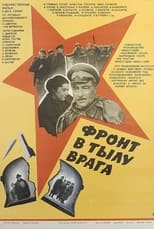
Front in the Rear of the Enemy
December 20, 1981
A final episode in the trilogy about the Russian partisan's resistance during WWII. The film is set in 1944, when Russian partisans are making progress in their fighting against the Nazi occupation of Russia, Poland and Czechoslovakia. Lt. Colonel Mlynsky is now in charge of an international clandestine operation. He is the commander of the special group of partisan-fighters. Mlynsky is organizing the Russian, Polish and Czechoslovakian partisans to join forces for an attack behind the enemy lines.
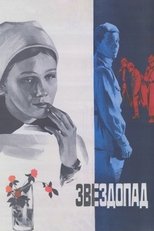
Falling Stars
December 16, 1981
Falling Star is based on three stories by the contemporary Russian writer Viktor Astafyev and centers on a young soldier on the front lines who is wounded and taken to the hospital. Once there, he muses about his childhood and a little girl he had loved - someone who could easily have grown up to be the nurse that is attending to him now. As he recuperates, he and the nurse fall in love and he very much wants to marry her. At this point, the nurse's mother comes for a visit and advises him against such an action because if they were to marry and he were subsequently killed or maimed in action - the fighting is still close to the hospital - the nurse would suffer much more than if he just left her alone. Now it is up to the soldier to make a decision one way or the other.
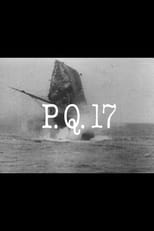
P.Q. 17
December 15, 1981
"That order to scatter was as good as a death sentence to those merchant ships. And there isn't one officer or rating who doesn't agree with me." A British Allied convoy designated for the Soviet Union comes under attack from German forces during World War II.
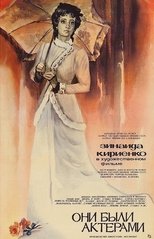
They Were Actors
December 12, 1981
The plot of the film is based on real events of the Great Patriotic War. When the Nazis occupied Crimea, the actors of the drama theater of the city of Simferopol entered the underground group Sokol. The activities of the underground members were diverse: they put up leaflets with information from Soviet Information Bureau, compiled maps showing the strategic objects of the enemy, and supplied the partisans with medicines. On April 10, 1944, 3 days before the liberation of Simferopol, the underground members died from enemy bullets — they were shot on the outskirts of the city.
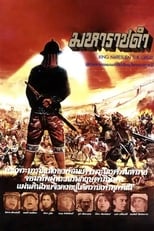
King Naresuen The Great
November 13, 1981
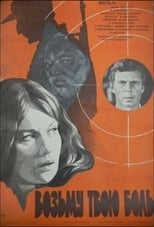
I'll Take Your Pain
November 10, 1981
A War Story
November 8, 1981
A Canadian doctor interned at a Japanese POW Camp during WWII must tend to his fellow British prisoners who are being worked to death in a mine.
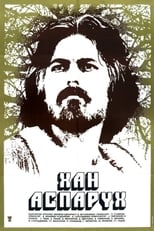
Khan Asparukh - Part I - Phanagoria
October 18, 1981
This is an epic screen presentation showing the creation, the consolidation and the power of First Bulgarian Kingdom and the first Bulgarian ruler Khan Asparuh. This is the first part of the film trilogy about the events before the creation of the Bulgarian state in the middle of the VII century. Volga Bulgaria is straining under the attacks of the Khazars. Following the testament of his father, the sons of Khan Kubrat looking for a new home for their tribes. The youngest of them - Asparukh, wander 20 years in search of "land forever" for his people and reaches the mouth of the Danube. The film is narrated by captured Byzantine chronicler Belisarius, which should Asparukh in his journeys. Byzantine witnessed the heroic efforts of the Bulgarians to win the land south of the Danube and to create their new country.

Circle of Deceit
October 15, 1981
Georg Laschen leaves his family in West Germany to go work as a war correspondent in Beirut during the fights between Christians and Palestinians.
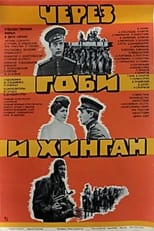
Via Gobi and Khingan
October 6, 1981
About the events of the final stage of the Second World War — the defeat by Soviet and Mongolian troops of the selected Kwantung army. Bacteriological weapons were created in the laboratory of Japanese General Ishii Shiro. Experiments were conducted on prisoners of war and political prisoners. Epidemiologist Dmitry Sokolov was assigned to solve the mystery of this laboratory. At the cost of his own life, he completed the task. The march of Soviet and Mongolian formations through the Gobi sands and the Khingan spurs was not only a brilliant military operation, but also a warning of the use of bacteriological weapons by Japan.